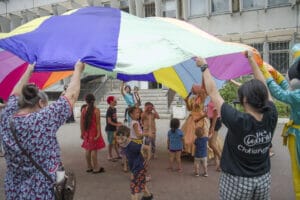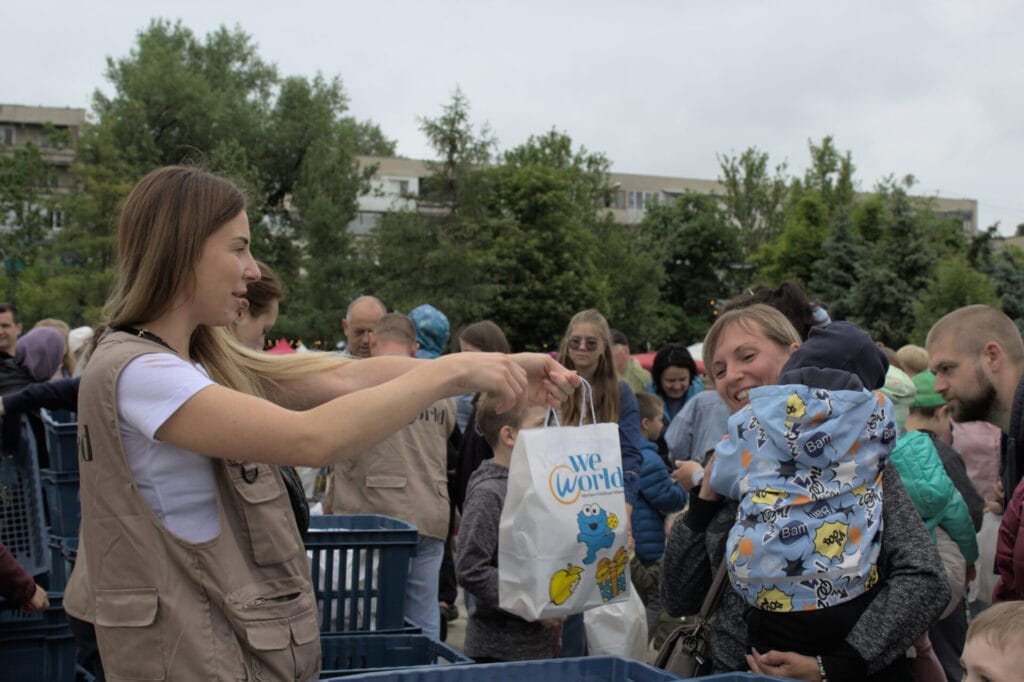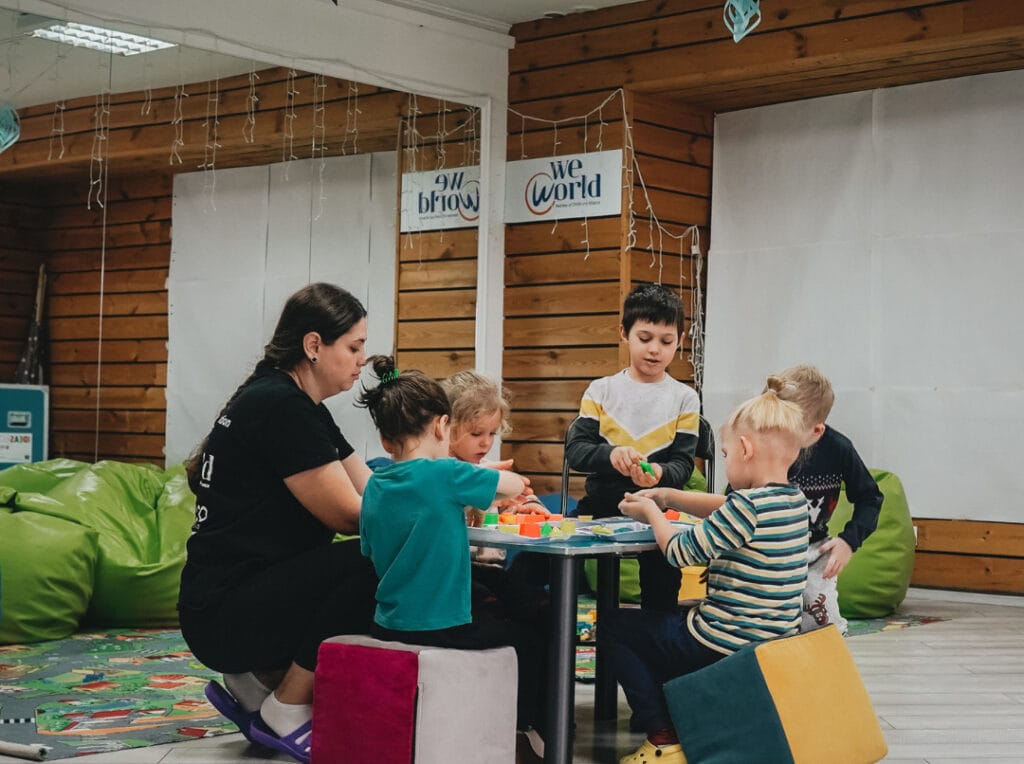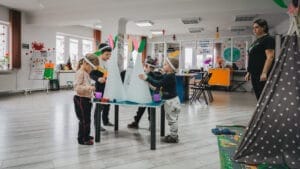
The context WeWorld is launching a new project, funded by the Italian Agency for Development Cooperation (AICS), to address social…
Discover moreSince the beginning of the conflict in Ukraine, more than 10 million people had to flee their home. As of 29 September 2024, 123,729 refugees from Ukraine are officially recorded to be in Moldova. Thanks to our institutional donors, we immediately took action to give support to people affected by the war, both inside and outside the Ukrainian borders. We have been operating in Moldova since March 2022, providing support to families who have crossed the border in search of shelter and essential support, with particular attention to children. The goal is to restore a sense of normality for those who have had to leave their homes and are still suffering the traumas of the conflict.
Moldova is a country located between southern Ukraine and Romania, with a population of 2.6 million people. Currently, more than 60,000 people are registered under the Temporary Protection in Moldova, hosted mainly in private accommodations (97%), but also in refugee accommodation centers (RAC) set up by the government. They are mostly women and children.
Both the government and the Moldovan people have a positive approach towards the Ukrainian refugees in the country. Nonetheless, Moldova being the smallest economy in Europe, it is suffering from a high rate of inflation and rising energy prices. For this reason, humanitarian support to Ukrainian refugees must go hand in hand with integration and livelihoods, not only for refugees but also for the most vulnerable people in the Moldovan society.
We decided to intervene in Moldova immediately, from the beginning of the conflict, as the country became one of the primarily reception points of individuals fleeing the war in Ukraine, perceived as a safe place for many families in difficulty. We have supported over 17,000 people in the country by the end of 2024, of whom 63% are women and 60% are children, with a multi-sector approach, and continue to invest in projects allowing a better immediate support and long-term integration of Ukrainian refugees.
First aid support was provided through fresh food and hygiene products to Ukrainians sheltered in Chisinau. From March to June 2024 the fresh Food distribution reached 2,000 household a week and we supported 750 families through hygiene products distribution.

To deploy a comprehensive approach and support refugees in their transition, we put in place cross-border Education and Health programmes focusing on non-formal education and Mental Health and Psychosocial Support. We opened our first Community Center in Chisinau in 2023 through which our team of educators and psychologists provides educational and psychological support to 7,000 Moldovan people and Ukrainian refugees. Our cross-border intervention in 2024 has guaranteed psychosocial support to over 4,740 people and educational support to over 4,784 individuals, since the beginning of the conflict. Not only focusing on Ukrainian refugees present in Moldova but also in-country vulnerable communities, we are strengthening our support in the Northern region where the Roma communities concentrate and face stigmatization and discrimination challenges. On top of supporting those communities with non-formal education, and access to other targeted services, we are collaborating with governmental and civil society actors and commonly set up three additional community spaces and women safe spaces (located in public schools and libraries) to better support local communities.

Given the context of the country, our response also focuses on strengthening the resilience of host institutions and communities, as well as the livelihood of the refugee community, by promoting economic inclusion, access to essential services and social cohesion among refugee and host communities. These elements play a key role in ensuring that refugees become more resilient and self-reliant, and they reduce the factors of risk and vulnerability. It is why all our activities in the country take into account social cohesion and the active involvement of both the refugee and the host communities, to strengthen integration. In fact, food and other basic needs come mostly from local producers, to support the local economy and small Moldovan producers, while the refugee population is actively involved in the organization and delivery of food parcels.
WeWorld's intervention in Moldova is possible thanks to the support of ChildFund Alliance, Aktion Deutschland Hilft, AICS and many companies and people who are supporting us.
The context WeWorld is launching a new project, funded by the Italian Agency for Development Cooperation (AICS), to address social…
Discover moreINTERVENTION CONTEXT Moldova, a small, landlocked country in Eastern Europe bordered by Ukraine to the east and Romania to the…
Discover moreMoldova is a small country between southern Ukraine and Romania with a population of about 3.5 million people and currently…
Discover more
